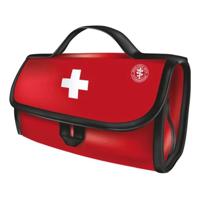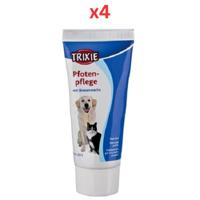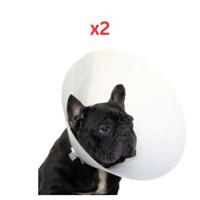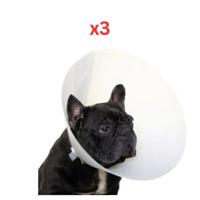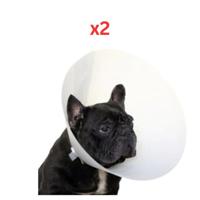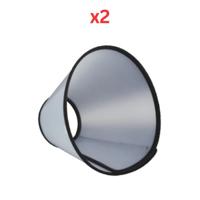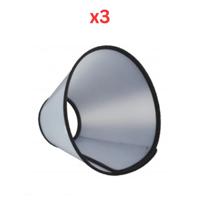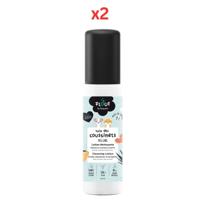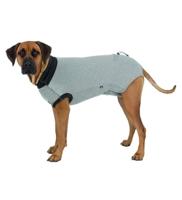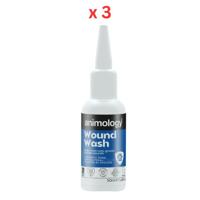About Pet Wound Care
Dogs and cats are curious animals. They don’t like sitting around idly and always want to explore something new. While that’s what we love about them, the same can also invite injuries. So, as a pet owner, you should always have a pet first aid kit handy at all times. And pet wound care items should be a significant part of it.
Before we begin, you should know that any wound in pets that are more severe than a minor injury will need a specialist opinion from a qualified vet. But if they are just some minor wounds or scrapes, you can treat them at home. That way, you don’t have to wait long hours at the hospital. Not only can a wound be painful for the animals, but it can also be a difficult ordeal for you as well as a pet owner. Also, your pets can act snappish after an injury. You have to take all these things into consideration when during pet wound care. Read on to know about the various steps involved in wound care and the medications you should use.
A guide to pet wound care in cats and dogs
Before treating the wound yourself, you should assess the wound. This is to make sure that it is not severe. If it is a serious injury, you should take the animal to the vet immediately after stabilising the pet. In some cases, even if the wound is minor, there can be some serious internal injury like in the case of an injury caused by blunt objects. If there is bleeding, use a tourniquet or pneumatic cuff to stem the bleeding. The general steps of pet wound care consist of cleaning the wound, controlling the infection, and stopping the wound from getting too dry or too wet.
Cleaning the wound
In the case of pet wound care, the cleaning of the wound involves two steps. First, you should wash the wound, then remove the dead tissues from and around the wound. Washing will help remove any contaminants while removing the dead tissues, also called debridement. This will help the medication to be more effective and avoid bacterial growth. Before you go about cleaning the wound, get another pair of hands to restrain the pet. Then, remove the fur from the skin surrounding the wound and wash the wound with warm water. After that, remove the debris.
Dressing the wound
The primary reason for covering the wound helps to keep the bacteria away. But in the case of pets, dressing also stops them from licking wounds. Before closing the injury, you must apply an antiseptic solution to the area. Also, apply some antimicrobial ointment to the wound. For canine and feline wound care, broad-spectrum topical antibiotic ointments are better. If you think that the wound is too big to be dressed with a bandage, you should get professional help. Sometimes, your pet might need its wound closed using a suture.
Treating the wound without closing it
In some cases, dressing the wound is a bad idea. This is true if there is too much skin loss or if the area is too infected to close. Keeping the wound open also helps you to monitor the healing and progressively clean the wound if there is a discharge of pus or infection. Open wound management can also mean repeated bandaging of and cleaning the wound depending on the animal’s need. In those cases, you should change the dressing every day. But if the wound is that serious, you should always get help from a veterinarian.
Using hydrogen peroxide for pet wound care
There is, in fact, a conflict of opinion between experts on using hydrogen peroxide. Hydrogen peroxide reacts with the chemicals in the bacterial cells and destroys them. But there is a downside. Hydrogen peroxide cannot distinguish between bacterial cells and useful cells. So, in the process of killing the bacterial cells, the solution also destroys some healthy tissues. Therefore, some doctors strictly forbid the use of hydrogen peroxide on open wounds. But there are others who say it is okay to use it once, in small quantities, on the wound. In any case, you should be careful when using it as the pain can provoke the animal to bite you.
Tips on how to buy Pet Wound Care Online
If you are a pet owner, you have to have at least the most basic wound care products. Because it is not about if your pet will sustain a wound or not, it’s only a matter of when. But when you buy wound care products, you have to make sure that you are getting the appropriate one. Otherwise, it can do more harm to the animal. You can follow these tips to help you choose the right products when you shop.
- Look out for knock-off products – You might come across fake products that dress up as genuine medicines. These products can be harmful to animals and can make their wounds worse. So, do the research and only buy medicines from trusted manufacturers.
- Canine and feline wound care – Cats are more sensitive to chemicals than dogs. Therefore, the medications that you use on dogs might not be suitable for your cats. You can consult your vet for alternative medication in such cases.
- Look for generic alternatives – It can be that the same type of medicine will have different price ranges. In most cases, there won’t be much difference in the quality of the medicine except for the brand. Look for cheaper brands that provide the same quality.
- Get some clippers and scissors – Before you begin the treatment of the wounded skin, you should remove the fur that will interfere with the treatment. You can use an electric clipper to remove the hair without hurting the animal. It is better to use silent clippers to avoid causing anxiety to the pet.
When you use wound care products, you need to be a little careful! You shouldn’t use any healing products on wounds that aren’t meant to be applied on open wounds. However, consulting a vet to evaluate your pet’s wound is always recommended. Finally, don’t forget to check out all the other amazing collections of animal pharmacy and animal care products using our UAE search engine . So, what are you waiting for? Start shopping now for pet supplies .
Question & Answer
How do you treat a wound in horses?
If you are a horse owner, you already know that horses sustain more wounds than any other pet. When it comes to wounds on horse legs, treating them is not the same as dog paw wound care. Even if there are no visible injuries on their legs, the tendons can suffer severe damage. But if it is a minor skin abrasion, you can treat it yourself at home using proper cleaning and dressing techniques. You should call a vet if the wound is deep, is bleeding or has jagged edges. If the horse has difficulty walking, there is a possibility of internal damage.
How do you keep a dog from licking a wound?
You can try a few different methods to stop the dog from doing this. Not all of them will work for all dogs, though. The easiest method is to put a cone or Elizabethan collar around the dog’s neck. But some dogs do find some workarounds against this. In that case, you can use an inflatable collar. When you inflate it to make a snug fit around the dog’s neck, it will find it difficult to bend its neck to lick the wound. There are also neck braces you can buy that work in a similar way. If none of these works for your dog, you should try covering the wound itself.
Can vetericyn be used on open wounds?
There are two types of vetericyn available for pet wound care. The first one is vetericyn liquid, and the other is vetericyn antimicrobial hydrogel. Both of these are safe and non-toxic for you to use on bare and open wounds. The vetericyn liquid is to be used for cleaning the wound, while the antimicrobial hydrogel is to avoid bacterial growth. The hydrogel also retains just enough moisture in the wounds to speed up the healing process. The hydrogel forms a barrier over the skin to keep away contaminants as well. But you can also cover the wound even if you have used vetericyn.
Luckily, at Shops.ae you can find a wide range of reliable wound care products from brands like Farnam, Vetericyn, Banixx, Keri Cure, NaturVet, Royal Canin, NaturPet, and DD Multicare. Explore now to make the best buying decision for your dear pet.

